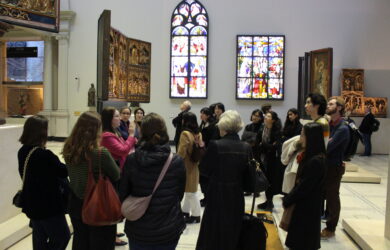
Pradipta Biswas will lead a project to design a virtual reality cockpit for India's maiden human space flight mission.
A Gates Cambridge Scholar will be principal investigator in the design of a virtual reality cockpit for India’s maiden human space flight mission.
Pradipta Biswas is Assistant Professor at the Centre for Product Design and Manufacturing the Indian Institute of Science which has signed a Memorandum of Understanding with the Indian Space Research Organisation to design the cockpit. The first Indian crewed mission was originally planned to be launched on ISRO’s GSLV Mk III in December 2021 to Low Earth Orbit, but this has since been delayed to no earlier than 2023.
It is hoped that the Gaganyaan Programme, India’s space programme, will lay the foundations for a sustained Indian human space exploration programme. It involves two unmanned test launches in advance of a manned flight.
The research project builds on Professor Biswas’ previous research on the use of eye gaze controlled interfaces in automotive environments, which he authored a book on, and on estimating pilots’ cognitive load from ocular parameters through simulation and in-flight studies.
Professor Biswas’ team has also been working on an interactive and immersive digital twin of BT office premises in Bangalore. It will use state of the art virtual and augmented reality systems and will investigate challenges in real time data visualisation and interaction between Augmented Reality/ Virtual Reality systems in detail.
The VR cockpit project will work in a similar way, involving the creation of an interactive digital twin of the cockpit.
Professor Biswas [2006] did his PhD in Computer Science at the University of Cambridge where he was a Gates Cambridge Scholar.
*Picture credit: Robot Arm Over Earth with Sunburst – GPN-2000-001097.jpg. Author: NASA. Original uploader was Mrshaba at en.wikipedia.












